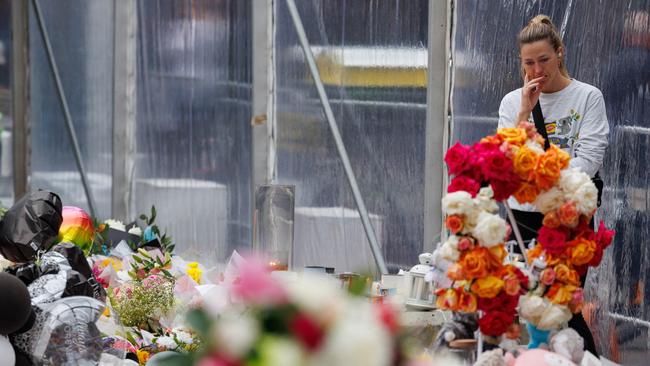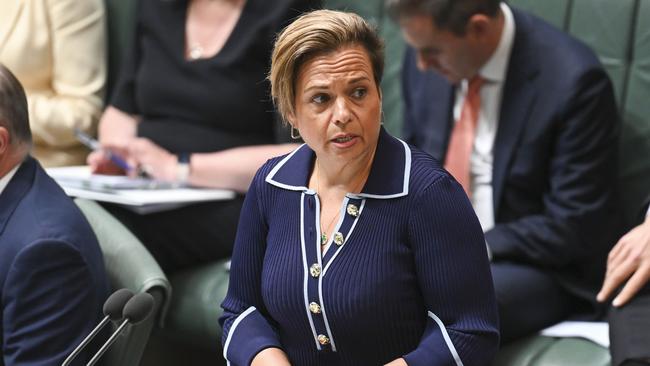X’s revenue sharing payouts incentivising users to spread violent and distressing content
The fallout of two stabbing events has shone a spotlight on how big tech companies make a profit off their platforms.
Social
Don't miss out on the headlines from Social. Followed categories will be added to My News.
Influencers on X who spread disturbing videos and misinformation about two stabbing incidents in Sydney could make a profit under the platform’s ad revenue-sharing scheme, as politicians move to condemn Elon Musk’s controversial online business model.
Mr Musk’s digital platform has been locked in a legal stoush with the federal government over its refusal to delete posts showing the stabbing of a bishop at a church in Wakeley.
As tensions rise between tech giants and leaders, experts have pointed X’s revenue program that incentivises blue-ticked users to earn hundreds of dollars in monthly income to spread misinformation and bank off the desperate search for answers in the wake of crisis events.
“Unfortunately, it comes down to money and X’s monetisation framework is literally set up to optimise emotional, low-quality content that people just can’t get enough of,” University of Technology Queensland digital media expert Timothy Graham said.
“Content producers have responded really quickly to it and there is a market on the platform for this kind of stuff, and there’s a lot of different actors in the space with a lot of different motives.”

Mr Musk announced last year that X would allow creators to earn income from the ads in their post replies.
Later in September, the platform’s chief executive claimed the company had paid out users a total of $20m in ad revenue-sharing payouts.
To be eligible, users need to be subscribed to X premium, have at least five million impressions on their posts during a three-month period, and have at least 500 followers.
Users began quickly posting screenshots showing receipts claiming to have made hundreds of dollars in their first month.
Dr Graham said the tragedies like the Bondi massacre and the Wakely stabbing posed a “huge advantage” for users to make a profit due to the platform’s reliance on generating engagement or “impressions”.
“There is moderation that occurs on the platform, and there are community notes, but it doesn’t work – especially not for stuff that is fast,” Dr Graham said.
“But fundamentally, low-quality content that’s not true is going to be rewarded with money.”
They say making your first $291.8136984 is the hardest. pic.twitter.com/PGATnibKLb
— Rob Freund (@RobertFreundLaw) August 8, 2023
In the hours after the Bondi massacre that killed six people, a cesspool of trolls and online social media personalities flooded social media with posts wrongly speculating about the attacker’s identity and motives within hours of the incident.
Prominent figures with large followers later helped to amplify a storm of conspiracy theories.
When news broke of the attack, right-wing British broadcaster Julia Hartley-Brewer, a verified user with 469.1k followers, posted: “Another day. Another terror attack by another Islamist terrorist. Six dead, others seriously injured, including a baby.”
The post remains live and has garnered more than 9.2 million views.
Although it cannot be monetised due to being flagged by X’s community notes function, Dr Graham estimated the post could have generated anywhere between $US80 to $US100.
This does not suggest Ms Hartley-Brewer published the post with a financial motive.

Communications Minister Michelle Rowland urged people who come across harmful content on social media to report it to the eSafety regulator.
“People shouldn’t be financially rewarded for posting and sharing harmful content, including terrorism content on platforms like X,” Ms Rowland said.
“The eSafety Commissioner has necessary powers under the Online Safety Act to remove illegal content – including terrorist content.
“Our message to Australians is please do not share or engage with this content.
“It is causing distress and may very well cause harm to vulnerable Australians, including children.”
Originally published as X’s revenue sharing payouts incentivising users to spread violent and distressing content




